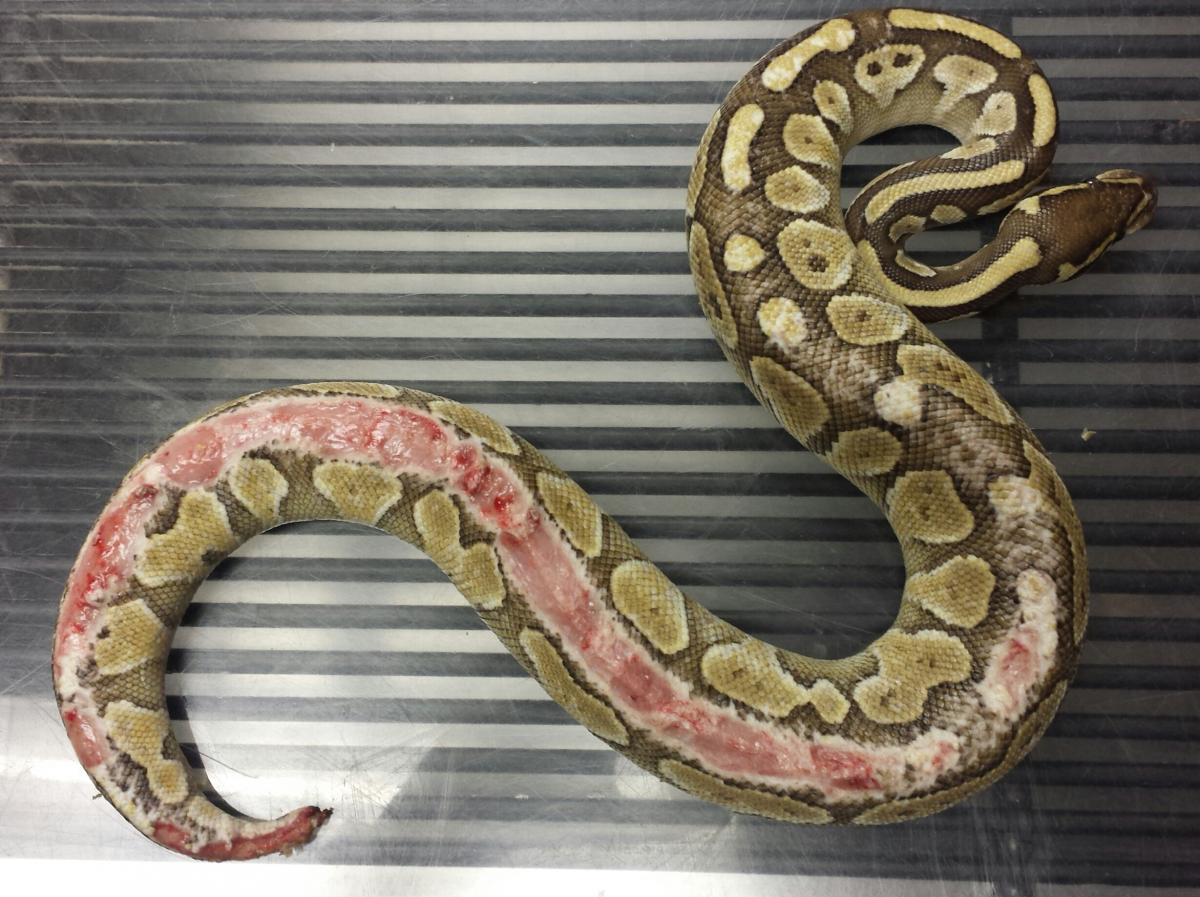Benefits of Feeding Frozen/Thawed Rodents to Snakes
Almost all snakes can be trained to eat thawed frozen rodents. It is dangerous to feed live rodents as they can severely injure or even kill your snake.
Advantages for Reptiles and Their Owners of Feeding Thawed Frozen Rodents
1) Can’t bite or scratch reptile
2) Can’t bite or scratch owner
3) Freezing kills many parasites
4) More economical
5) Convenient
6) Steady availability
7) No chance of rodent escaping in the home
8) Sanitary; no urine or feces
9) Supplements can be inserted

This ball python was attacked by a live rodent that was left unattended in the cage with it when the snake didn't eat it right away. Notice the large sores over its back. Injuries like this are not uncommon in snakes fed live prey items.
Reasons a Reptile Might Refuse to Eat Thawed Frozen Rodents
1) Incorrect environmental conditions
2) Feeding too often
3) Incorrect food item size
4) Reptile may prefer prey items of a different species (odor cues - mice vs. rats vs. African soft-furred rats vs. gerbils vs. quail chicks)
5) Reptile is about to shed its skin
6) Illness
Tips to Make the Switch
1) Warm the rodent in water to a temperature of about 110°F and dry it off before offering to the reptile
2) Place the thawed rodent in dirty bedding from live rodents to make it smell more like a live rodent
3) Do not disturb your reptile after putting the thawed rodent in the cage. Cover the front of the cage and do not look into it until the next day.
4) Feed sun-loving reptiles in the middle of the day. Feed nocturnal reptiles, like most snakes, at sundown or in the early evening.
5) Some reptiles may need "fresh killed" rodents for a few feedings before making the switch to thawed frozen rodents
6) Never re-use an uneaten rodent. Not only does it spread disease, but the process of thawing and refreezing can cause the rodent to become rotten and unwholesome to eat.
If your reptile refuses to make the switch after several tries, request an appointment with one of our veterinarians to rule out illness as a cause.



